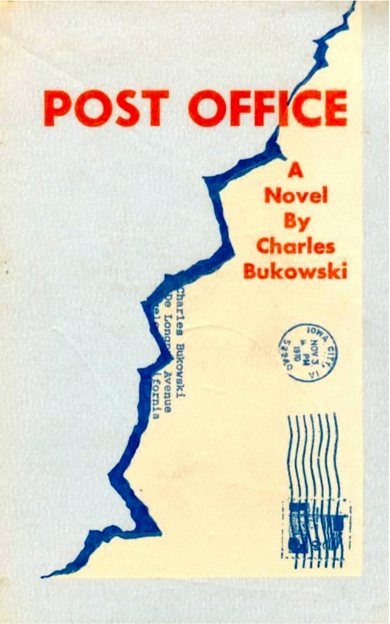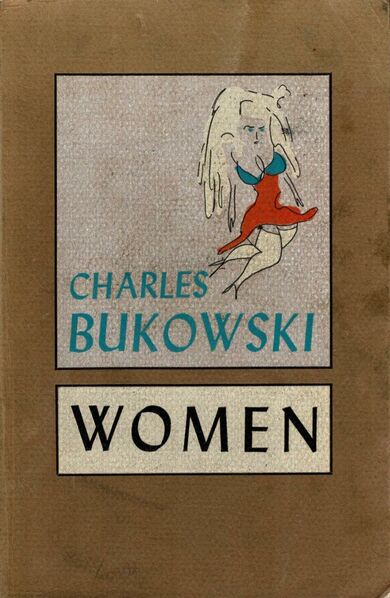Ham on Rye: 31
The next day I sat in the hall in my green tin chair, waiting to be
called. Across from me sat a man who had something wrong with his nose. It was very red and very raw and very fat and long and it was growing upon itself. You could see where section had grown upon section. Something had irritated the man’s nose and it had just started growing. I looked at the
nose and then tried not to look. I didn’t want the man to see me looking, I knew how he felt. But the man seemed very comfortable. He was fat and sat there almost asleep.
They called him first: “Mr. Sleeth?”
He moved forward a bit in his chair.
“Sleeth? Richard Sleeth?”
“Uh? Yes, I’m here . . .”
He stood up and moved toward the doctor.
“How are you today, Mr. Sleeth?”
“Fine . . . I’m all right . . .”
He followed the doctor into the examination room.
I got my call an hour later. I followed the doctor through some
swinging doors and into another room. It was larger than the examination room. I was told to disrobe and to sit on a table. The doctor looked at me. “You really have a case there, haven’t you?”
“Yeah.”
He poked at a boil on my back.
“That hurt?”
“Yeah.”
“Well,” he said, “we’re going to try to get some drainage.”
I heard him turn on the machinery. It made a whirring sound. I could
smell oil getting hot.
“Ready?” he asked.
“Yeah.”
He pushed the electric needle into my back. I was being drilled. The
pain was immense. It filled the room. I felt the blood run down my back.
Then he pulled the needle out.
“Now we’re going to get another one,” said the doctor. He jammed the
needle into me. Then he pulled it out and jammed it into a third boil. Two
other men had walked in and were standing there watching. They were probably doctors. The needle went into me again.
“I never saw anybody go under the needle like that,” said one of the
men.
“He gives no sign at all,” said the other man.
“Why don’t you guys go out and pinch some nurse’s ass?” I asked them.
“Look, son, you can’t talk to us like that!”
The needle dug into me. I didn’t answer.
“The boy is evidently very bitter . . .”
“Yes, of course, that’s it.”
The men walked out.
“Those are fine professional men,” said my doctor. “It’s not good of you to abuse them.”
“Just go ahead and drill,” I told him.
He did. The needle got very hot but he went on and on. He drilled my entire back, then he got my chest. Then I stretched out and he drilled my neck and my face.
A nurse came in and she got her instructions. “Now, Miss Ackerman, I want these . . . pustules . . . thoroughly drained. And when you get to the blood, keep squeezing. I want thorough drainage.”
“Yes, Dr. Grundy.”
“And afterwards, the ultra-violet ray machine. Two minutes on each side to begin with . . .”
“Yes, Dr. Grundy.”
I followed Miss Ackerman into another room. She told me to lay down on the table. She got a tissue and started on the first boil.
“Does this hurt?”
“It’s all right.”
“You poor boy . . .”
“Don’t worry. I’m just sorry you have to do this.”
“You poor boy . . .”
Miss Ackerman was the first person to give me any sympathy. It felt strange. She was a chubby little nurse in her early thirties.
“Are you going to school?” she asked.
“No, they had to take me out.”
Miss Ackerman kept squeezing as she talked.
“What do you do all day?”
“I just stay in bed.”
“That’s awful.”
“No, it’s nice. I like it.”
“Does this hurt?”
“Go ahead. It’s all right.”
“What’s so nice about laying in bed all day?”
“I don’t have to see anybody.”
“You like that?”
“Oh, yes.”
“What do you do all day?”
“Some of the day I listen to the radio.”
“What do you listen to?”
“Music. And people talking.”
“Do you think of girls?”
“Sure. But that’s out.”
“You don’t want to think that way.”
“I make charts of airplanes going overhead. They come over at the same
time each day. I have them timed. Say that I know that one of them is going
to pass over at 11:15 a.m. Around 11:10, I start listening for the sound of
the motor. I try to hear the first sound. Sometimes I imagine I hear it and sometimes I’m not sure and then I begin to hear it, 'way off, for sure. And
the sound gets stronger. Then at 11:15 a.m. it passes overhead and the sound is as loud as it’s going to get.”
“You do that every day?”
“Not when I’m here.”
“Turn over,” said Miss Ackerman.
I did. Then in the ward next to us a man started screaming. We were
next to the disturbed ward. He was really loud.
“What are they doing to him?” I asked Miss Ackerman.
“He’s in the shower.”
“And it makes him scream like that?”
“Yes.”
“I’m worse off than he is.”
“No, you’re not.”
I liked Miss Ackerman. I sneaked a look at her. Her face was round, she
wasn’t very pretty but she wore her nurse’s cap in a perky manner and she
had large dark brown eyes. It was the eyes. As she balled up some tissue to throw into the dispenser I watched her walk. Well, she was no Miss Gredis, and I had seen many other women with better figures, but there was something warm about her. She wasn’t constantly thinking about being a woman.
“As soon as I finish your face,” she said, "I will put you under the
ultra-violet ray machine. Your next appointment will be the day after
tomorrow at 8:30 a.m.”
We didn’t talk any more after that.
Then she was finished. I put on goggles and Miss Ackerman turned on the ultra-violet ray machine.
There was a ticking sound. It was peaceful. It might have been the automatic timer, or the metal reflector on the lamp heating up. It was comforting and relaxing, but when I began to think about it, I decided that everything that they were doing for me was useless. I figured that at best
the needle would leave scars on me for the remainder of my life. That was
bad enough but it wasn’t what I really minded. What I minded was that they didn’t know how to deal with me. I sensed this in their discussions and in
their manner. They were hesitant, uneasy, yet also somehow disinterested and bored. Finally it didn’t matter what they did. They just had to do something
—anything—because to do nothing would be unprofessional.
They experimented on the poor and if that worked they used the treatment on the rich. And if it didn’t work, there would still be more poor left over to experiment upon.
The machine signaled its warning that two minutes were up. Miss Ackerman came in, told me to turn over, re-set the machine, then left. She was the kindest person I had met in eight years.






